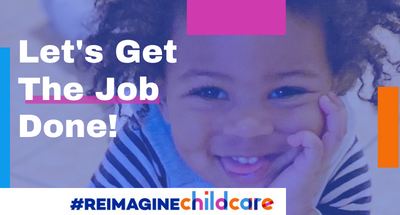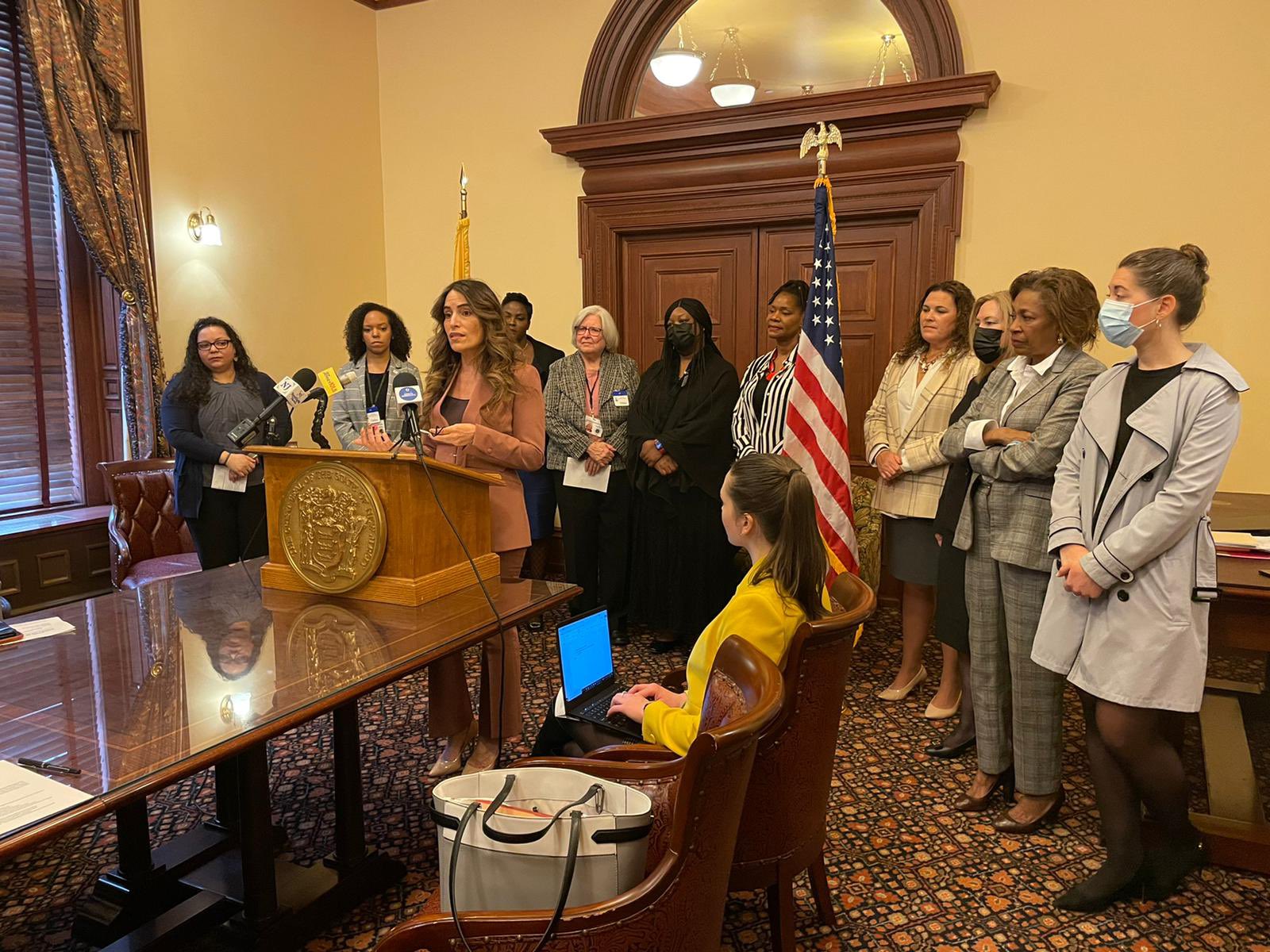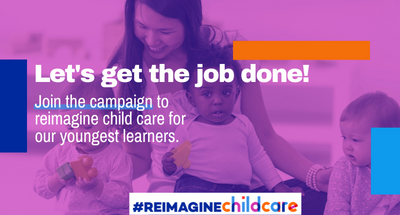Posted on April 14, 2022
Help us make some noise to #ReimagineChildCare in New Jersey.
ACNJ President and CEO Cecilia Zalkind recently authored an op-ed supporting a comprehensive package of bills introduced by State Senate Majority Leader Teresa Ruiz (D- 29) that would invest $360 million for child care in New Jersey. Legislative proposals in the package co-sponsored by Senator Joe Vitale, Senator Nilsa Cruz-Perez and Senator Sandra Bolden Cunningham would help parents, strengthen programs and support staff. One bill, S-2476, incentivizes the development of child care for infants and toddlers, the most difficult for families to find. Read the op-ed
We need to keep the conversation in front of the Governor. He needs to hear from New Jersey residents, especially parents, that it's time to end the child care crisis.
Here's what you can do to keep the conversation going.
 Submit a post with a link to the editorial in your local Patch news outlet. Below are some sample posts. You can post your own op-ed as well. It's really easy!
Submit a post with a link to the editorial in your local Patch news outlet. Below are some sample posts. You can post your own op-ed as well. It's really easy!
Haven't posted in your local Patch before? If you have a profile in your local Patch, go to patch.com. Click on "neighborhood posts" on the menu bar. In the box where it says "Ask a question or share local news" copy and paste one of the two sample posts below. It's that easy!
Don't know your local Patch or haven't posted before? Go to patch.com. Enter your zip code and a list of local ones will appear. You will then have to sign up and create a profile. Then follow the steps above to post.
Sample #1
Can we afford not to invest in child care? There is a big gap in child care funding and services in New Jersey and parents, programs and the economy are feeling the pain. It’s time New Jersey ends the child care crisis. The $360M investment for babies is a step in that direction. #ReimagineChildCare with us and read an op-ed by Cecilia Zalkind, ACNJ President/CEO: https://www.nj.com/opinion/2022/04/can-new-jersey-afford-not-to-invest-360m-in-child-care-opinion.html
Sample #2
We still have work to do for babies - Governor Murphy's commitment to children has led to extraordinary advances, putting the state ahead of the rest of the country and most importantly, improving the lives and well-being of newborns and preschool-age children. But we are still missing the babies. #ReimagineChildCare with us and read an op-ed by Cecilia Zalkind, ACNJ President/CEO: https://www.nj.com/opinion/2022/04/can-new-jersey-afford-not-to-invest-360m-in-child-care-opinion.html
 Submit an op-ed in your local news outlets.
Submit an op-ed in your local news outlets.
Contact us and we will provide you with assistance.
 Share the op-ed with your network and help us keep the momentum going. Follow us on social media and share! (Pro-tip - Facebook groups are great for spreading the word!)
Share the op-ed with your network and help us keep the momentum going. Follow us on social media and share! (Pro-tip - Facebook groups are great for spreading the word!)
There is a big gap in #childcare funding and services in NJ and parents, programs and the economy are feeling the pain. It’s time we make the $360M investment for babies and end the child care crisis. Read more: https://t.co/UMf7osfaaW #ReimagineChildCare
— AdvocatesforChildren (@ACNJforKids) April 19, 2022









